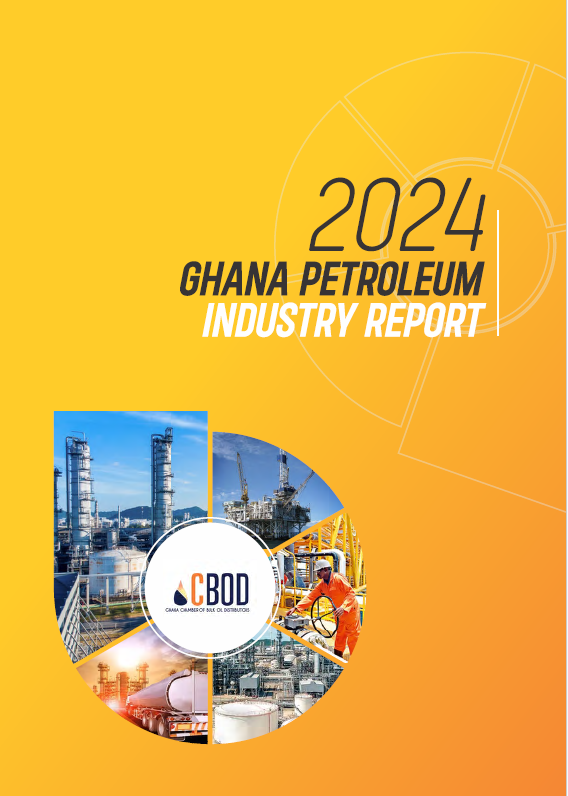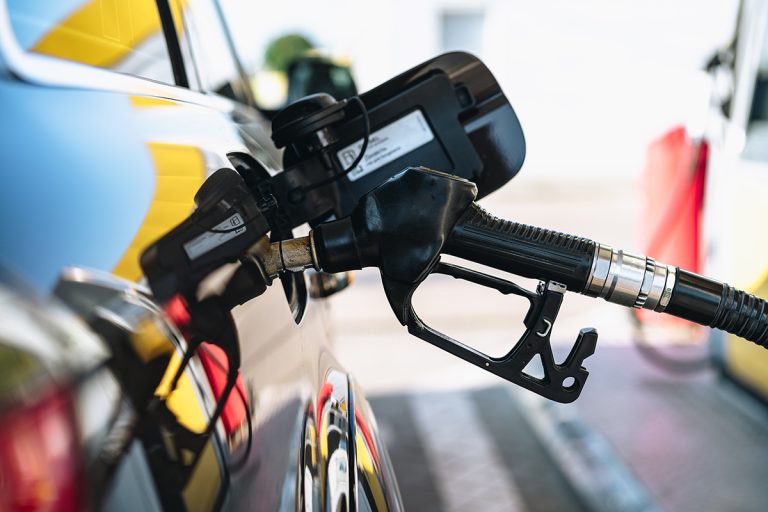The Chief Executive Officer of the Chamber of Bulk Oil Distributors (BDCs) Senyo Hosi has denied confessing to the bribery allegations being levelled against him in a leaked tape currently in circulation.
At a press briefing in Accra, Mr. Hosi said the leaked tape is a quest to deliberately malign his reputation and that of the members of the Chamber by creating the impression that “the accusations of bribery to connive and rob BOST are true.” According to a Daily Graphic report, some top officials at BOST supported some BDCs to rob BOST of petroleum products at the depots, leading to significant petroleum product losses that affected the national strategic reserve of petroleum products. The report said the criminal activities were used to create a negative balance of BOST indebtedness to the BDCs.
The BDCs has however denied the report.
A voice in a leaked tape believed to be that of Senyo Hosi accused the BDCs of bribery and conniving to rob BOST.
But Senyo Hosi clarified the issue saying “The selective voice recording being circulated was not in any way related to the BOST stock audit… There is therefore no confession to the allegations associated and concocted in respect of the stock audit.”
According to the CEO of the BDCs, the said tape is a confidential recording of a testimony he gave three years ago before a Ministerial committee set up to look into complaints lodged by Petroleum Service Providers (PSPs) of extortion by some BOST officials in time past.
“We were the victims and not the accomplices. The recording was formally done and was not a secret tape. It was held in confidence by the Ministry of Petroleum and other committee members under an oath of secrecy,” he stressed.
Mr. Hosi further blamed the Managing Director of BOST, Kwame Awuah Darko of leaking the said tape.
He explained that the recording from the Ministerial committee was made available to Mr. Awuah Darko when he assumed office.
“It is an indictment on the Ministry of Petroleum that the recording, bound by oaths of secrecy, was leaked to the media only after making a copy available to the MD of BOST,” he claimed.
Investigate BOST MD, Awuah Darko
The BDC is therefore calling on the Minister for Petroleum to initiate an investigation to ascertain how “such a sensitive file was leaked to the media and has been actively circulated.”
They are also appealing to the President, John Mahama and the sector Minister to constitute an investigative committee to look into the issues of reconciliation and allegations of bribery as well as the leakage of the confidential tape.
Hosi however served notice that while his outfit is calling for the formation of the said committee, “it is fair to understand that BOST will be liable for any accruing financial costs for delayed payments of its liabilities to BDCs.”
He further urged all government officials and the general public not to be misguided by the stories circulating in the media.
Below is the full statement from the BDCs
We are grateful for making time to honour our invitation to attend this press conference to address misplaced allegations of fraud on the part of BDCs against BOST as reported in the media last week.
We make particular reference to the front page publication in the Daily Graphic on the 23rd of April, 2015 and the draft copy of an Ernst & Young report which is now in the public domain. Ostensibly, the Ernst & Young draft report formed the sole basis for the Daily Graphic publication of April 23rd.
Referencing the E & Y report, the Graphic states that “the report further noted what it described as deliberate activities of top officials at BOST who supported the BDCs to rob BOST of petroleum products at the depots, leading to significant petroleum product losses that affected the national strategic reserve of petroleum products”. Curiously, the report itself neither used the above words nor could the actual findings in the report lead reasonably to the criminal extrapolations which the Daily Graphic publication bore.
The Graphic also reports that a comprehensive audit was undertaken on BOST from 2006. We regret to say this is not true. The exercise undertaken by Ernst and Young was a simple stock reconciliation from 2009 to July 2014 and a review of BOST’s own internal processes.
Many continue to confuse this stock reconciliation audit by E&Y initiated by BOST with the audit commissioned by the Minister of Finance to verify FX under recovery claims made by BDCs. These are two totally different audits undertaken by the same audit firm. To be clear, the audit on the FX under recoveries for July 2011 to December 2013 has been completed with government liability established.
More specifically, we wish to address the allegations as follows.
- Over Drawing BOST Strategic Stocks
- This is absolutely impossible and flies in the face of the facts. The last strategic stock procured by BOST was in November and December of 2008 from Trafigura (on a vessel by name MT Nordscot/Mare Baltic) and Tema Oil Refinery respectively. Quantities bought were 34,350mt and 8,090mt respectively.
- In March of 2009, BOST commenced the process of depleting its remaining pumpable strategic stocks. This was completed in the 2nd quarter of 2009. BOST since then never held strategic stocks over the period of the audit. BDCs have always served as the country’s strategic stock providers at no cost to the State.
- BDCs commenced the use of BOST facilities as rented storage depots with the discharged of petroleum products into the BOST system from the vessel MT Kraslava on March 20th 2009 and continue to use their facilities. BDCs pay BOST for the use of their facilities.
- It is therefore not possible for BDCs to drawdown on strategic stocks which did not exist. We simply could not take what BOST did not have.
- BDCs over the period of the audit have discharged about 8.2bn litres of petroleum products into the BOST system.
- In any case, the suggestion that BDCs have overdrawn their position implies an inflation of our receipts into the BOST system or an understatement of deliveries out of the BOST system. This is not operationally and economically viable. The counter checks and balances built into the processes can hardly be circumvented. The reference document for establishing deliveries is an OUTTURN REPORT which is signed by a representative of BOST and an independent inspector representing both the buying BDC and the international SUPPLIER
 . The independent inspectors employed include SGS and Inspectorate whose international credibility is unimpeachable. The outturn report serves as the reference document used in determining payments to the international oil suppliers, discharge fees to the mooring company and the storage fees to be paid to BOST. The higher the volume reported, the higher a BDC’s cost. It is therefore not in the interest of BDCs to entertain any form of overstatement. The lifting of products from BOST is done by OMCs on the authorization of BDCs, BOST and CEPS. Deliveries out of the BOST system are evidenced by a waybill signed by BOST, CEPS and the Tanker Driver and copies are kept by all parties including the OMC, BDC and eventually, the NPA. The WAYBILL is the key document for establishing taxes to be collected by CEPS. It serves as the key document based upon which an OMC will be invoiced as well as the reference for the payment of transportation costs from the Unified Petroleum Price Fund (UPPF) by the NPA to petroleum transporters and taxes by CEPs. As such, the conflicting interest of all these parties does not allow for products delivered to be understated. All sales out of the BOST system are verifiable by the NPA through the UPPF secretariat with CEPS as the ultimate verifier.
. The independent inspectors employed include SGS and Inspectorate whose international credibility is unimpeachable. The outturn report serves as the reference document used in determining payments to the international oil suppliers, discharge fees to the mooring company and the storage fees to be paid to BOST. The higher the volume reported, the higher a BDC’s cost. It is therefore not in the interest of BDCs to entertain any form of overstatement. The lifting of products from BOST is done by OMCs on the authorization of BDCs, BOST and CEPS. Deliveries out of the BOST system are evidenced by a waybill signed by BOST, CEPS and the Tanker Driver and copies are kept by all parties including the OMC, BDC and eventually, the NPA. The WAYBILL is the key document for establishing taxes to be collected by CEPS. It serves as the key document based upon which an OMC will be invoiced as well as the reference for the payment of transportation costs from the Unified Petroleum Price Fund (UPPF) by the NPA to petroleum transporters and taxes by CEPs. As such, the conflicting interest of all these parties does not allow for products delivered to be understated. All sales out of the BOST system are verifiable by the NPA through the UPPF secretariat with CEPS as the ultimate verifier. - The standard process of reconciliation between BDCs and BOST has always involved officials of both parties who reconcile evidence of binding Outturn Reports and Waybills. This process is transparent considering the fact that, other institutions within industry possess the base documents used in this process. This was done for every month over the 5 year audit period.
- The Ernst & Young Draft Report
- All must note that there is no final audit report issued by Ernst & Young and as such any reliance on the draft report currently in the public domain may be misguided. In fact, the document is clearly described as ‘RELIANCE RESTRICTED’ and ‘DRAFT’ to reflect this.
The report has in no way implicated any BDCs of having connived with any officials to perpetuate fraud or to rob BOST. We are however compelled as a result of recent reports to respond to some representations made in the report as being circulated.
Out of 16 BDCs audited from a pool of 28 today, the draft audit report indicates that it obtained adequate information on 8 BDCs in respect of which the audit assigned higher stock balances. The report indicates that in the case of the remaining 8, evidence attained was insufficient to establish the balances of these BDCs. As a matter of fact in the case of 5 BDCs of this 8, the evidence certified by the audit rather increases the undrawn stock position by 7,791% as against the reconciled position for Gasoil (Diesel). In the case of Gasoline (Petrol) 7 of this 8 will hold undrawn stock positions in excess of their reconciled positions by 1,038%. This only worsens BOST’s indebtedness to these BDCs. We must admit that even though this favours those BDCs, we are fully aware that it is inaccurate and requires further investigations to ascertain the true position.
- AUDIT SCOPE, METHODOLOGY & SET LIMITATIONS
- The scope of the audit and the set limitations of the methodology employed were primarily defined by BOST without consultations with BDCs who are interested parties as BOST. As a result, evidence to establish the true position of BDCs was limited to evidence BOST could directly produce and in some cases BDCs as a backup. This implied that where BOST or a contacted BDC may be unable to track a 4 or 6 year old raw data (like a waybill or outturn report) used to reconcile stock positions at that time, the multiple independent institutions with interest in and in possession of the same evidence were not consulted to submit the needed evidence with the view to establishing the true position. In the case of the key document of product receipts, OUTTURN REPORTS, it is also possessed by the Mooring Company, the independent inspectors who include the international SGS and Inspectorate as well the bank that financed the product. In the case of WAYBILLS and liftings, evidence abounds at the NPA UPPF secretariat and CEPS, independent of the BDCs. I must however say that the BOST data system as known to us has been significantly reliable. One which we occasionally fall on for copies of mutually independent data like OUTTURN reports. It is therefore surprising that E&Y purports not to have secured adequate data to verify the stock position of some BDCs. This gives credence to suspicions that the management of BOST has wilfully supressed evidence required to bring closure to the issue. Coupled with the restrictive scope given E&Y, it only suggests that the exercise was not meant to assist BOST ascertain the truth but to find reason to malign and taint the image of hardworking BDCs.
- IRRECONCILABLE AUDIT FINDINGS
- The E & Y draft report itself contained inaccuracies. Some findings represented in the report tend to question the thoroughness of the work done so far and the depth of the engagement with key officials whose institutional memory may be required to establish and understand the facts. A case in point is the assertion that ECO Petroleum, a BDC, had overdrawn balances in August and September of 2010. It will interest you to know that Eco Petroleum only commenced operating from BOST in January of 2011. How can a BDC yet to commence operations overdraw on stocks? In addition, the report refers to errors in computing operational losses for gasoil in 2009 of 0.25%. This clearly cannot be the case as all throughput agreements with BOST for 2009 had set the operational loss at 0.20% as in line with standards set by the NPA. Let me hasten to add that as inaccurate as portions of the E & Y report is, it may be excusable given the selective and arbitrary manner in which BOST may have fed it with data.
- INCONGRUENCE WITH RELATED REPORTS
- Ernst & Young were auditors of BOST in 2006 through to 2009. Over the relevant year of 2009, it did not identify any of the core issues raised in this stock reconciliation audit. It is also auditors for some BDCs where it has not in any way identified any misreporting of stock balances with BOST. How and why now in a report E & Y describes as ‘RELIANCE RESTRICTED’. This only confirms that once given an open and fair scope of work, it has the capacity to reasonably establish the true and fair view of stock positions.
- COLLUSION WITH BOST OFFICIALS
- Let me clearly state that, the allegation of “collusion” and “massive fraud” as reported in the Daily Graphic is neither stated nor supported by the E&Y draft audit report which formed the basis of the entire reportage. We wish to know who colluded with who? Which BDC with which BOST official to rob a strategic stock which did not exist? In fact where in the report is this stated? We wish to assure the Public that as industry we have not connived with BOST officials to rob the State. The audit that was undertaken by E&Y was not a forensic audit to be able to establish fraud.
The issue of fraud is serious and as a Chamber we will not countenance such acts by our membership. We therefore wish to encourage anyone with evidence of fraud to inform the appropriate state agencies for the necessary investigations.
- INACCURATE BOST STOCK CLAIMS AGAINST BDCs
- In the 2nd week of April 2015, BOST in letters signed by the Managing Director, made some outrageous claims against the 8 BDCs whose stock balances E & Y could not verify. The letter referred to a final audit report and tabled what it claimed were the established balances. This was dishonest and a false representation of the facts. There is no final audit report and no stock balances have been established in the draft report due to the inconclusiveness of evidence obtained by E & Y to recompile the balances.
Table 1 (Extract Data Reported by Draft Audit)-Gasoil
| PER MONTHLY RECONCILIATION REPORT (A) | PER SUPPORTING SCHEDULES AND DOCUMENTS OBTAINED BY E&Y(B) | ||||||
| BDC | RECEIPTS | DELIVERY | BALANCE | RECEIPTS | DELIVERY | BALANCE | |
| BDC 1 | 178,316,329 | 178,310,800 | 5,529 | 120,777,341 | 45,758,200 | 75,019,141 | |
| BDC 2 | 465,651,869 | 464,567,098 | 1,084,771 | 389,896,018 | 20,566,400 | 369,329,618 | |
| BDC 3 | 393,949,624 | 393,948,263 | 1,361 | 346,589,506 | 346,558,943 | 30,563 | |
Table 1 above summarises the data of some BDCs sampled from the draft audit report. Category A summarises the individual reconciliation reports which were jointly signed off by the BDC and BOST. Category B summarises the receipts and deliveries which according to the draft audit report, is supported by evidence. Irrespective of the evidence secured, it is obvious that not all reported transactions have been evidenced enough to sufficiently establish the position of the BDCs. Simply put, the draft audit report identifies Category B unreliable for decision making.
Surprisingly in an act that smells of mischief, BOST, in its letter to the BDCs matched the receipts in Category B which are lower with the deliveries in Category A which are higher to simply paint a picture of a gargantuan negative balance for his customers, the BDCs. This misuse and deliberate twisting of the content of the draft audit report can be observed in Table 2 below. This illegitimate stock balance reconstruction by BOST suggest BDCs owe BOST over 2.13 billion litres of Petroleum Products, representing over 25% of all products receipted into the BOST system from BDCs between 2009 and July 2014. This by all standards is ridiculous especially when BOST has not procured a single litre of Petroleum product over the said period. To blind BDCs from this ill intent, he deliberately failed to advise BDCs with copies of the draft audit report. This is unethical and unfortunate coming from a public officer tasked with managing a strategic state institution such as BOST. The MD’s conduct hardly shows his support for the growth of genuine Ghanaian businesses. How will Ghanaian businesses grow and contribute to the prosperity of the nation when public officials deliberately and diabolically seek to unfairly destroy them by falsely burdening them with unlawful debts, and destroying their reputations in the process as well?
Table 2 (Illegitimate BOST reconstructed data)
| BDC | RECEIPTS | DELIVERIES | BALANCE |
| BDC 1 | 120,777,341 | 178,310,800 | – 57,533,459 |
| BDC 2 | 389,896,018 | 464,567,098 | – 74,671,080 |
| BDC 3 | 346,589,506 | 393,948,263 | – 47,358,757 |
Respectfully, BDCs have served this nation, and with their bankers pre-financed heavy liabilities on behalf of the State and have bent our backs to consistently ensure supply of products to the Ghanaian public. We have grown from agents of foreign oil companies to become the drivers of an industry previously dominated by multi-national oil companies. The least we deserve is fair support to grow.
- ALLEGATIONS OF CONFESSIONS
- In a quest to deliberately malign my reputation and that of the members of the Chamber, a selectively leaked tape is being circulated so as to create the impression that the accusations of bribery to connive and rob BOST was true. I wish to state that neither my office nor person was involved in the audit process or any of the reconciliations that BDCs carry out with BOST monthly. The selective voice recording being circulated was not in any way related to the BOST stock audit. There is therefore no confession to the allegations associated and concocted in respect of the stock audit.
The tape is a confidential recording of my testimony given three years ago before a ministerial committee, the Agbenator Committee, set up to look into complaints lodged by Petroleum Service Providers (PSPs) of extortion by some BOST officials in time past. We were the victims and not the accomplices. The recording was formally done and was not a secret tape. It was held in confidence by the Ministry of Petroleum and other committee members under an oath of secrecy. The recording was made available to the MD of BOST by the Ministry upon his assumption of office. It is an indictment on the Ministry of Petroleum that the recording, bound by oaths of secrecy, was leaked to the media only after making a copy available to the MD of BOST. This we believe does not auger well for the cooperation of individuals and institutions when looking into issues of immense confidential importance. We hereby call on the Minister to take steps to investigate how such a sensitive file was leaked to the media and has been actively circulated.
- WAY FORWARD
- The actions by the Managing Director of BOST, as enumerated above has totally crushed our confidence in his ability to ethically and fairly engage with the industry in his capacity as Managing Director on issues pertaining to BDCs and BOST as well as other players. The issues raised are very serious issues and we humbly call on His Excellency the President and the Hon. Minister of Petroleum to kindly constitute an investigative committee to look into the issues of reconciliation and allegations of bribery as well as the leakage of the confidential tape. It must however be known that this call does not stop any BDC willing to take any legal action against BOST to establish its liability and secure payments from BOST, to do so. While we call on the formation of the said committee, it is fair to understand that BOST will be liable for any accruing financial costs for delayed payments of its liabilities to BDCs.
- In conclusion we call on Government officials and the public who have been misguided by the stories to respectfully rationalise for themselves;
- How can we be accused of ‘Massive Fraud’ and ‘Collusion’ when the draft report nowhere states or proves so with the reliability of the report itself being limited by the auditors and clearly defined as “RELIANCE RESTRICTED”. Even more so when it is known that the audit was a stock reconciliation audit and not a forensic audit which is required by audit practise to establish fraud.
- Whether or not it is possible to rob or overdraw strategic stocks which did not exist.
- Whether BDCs can be accused of over drawing 2.13bn litres of BOST stocks which did not exist from depots whose combined storage capacity does not exceed 425million litres.
Please judge for yourselves.
BDCs are for Ghana and we remain for Ghana!
Thank you!
–
By: citifmonline.com





